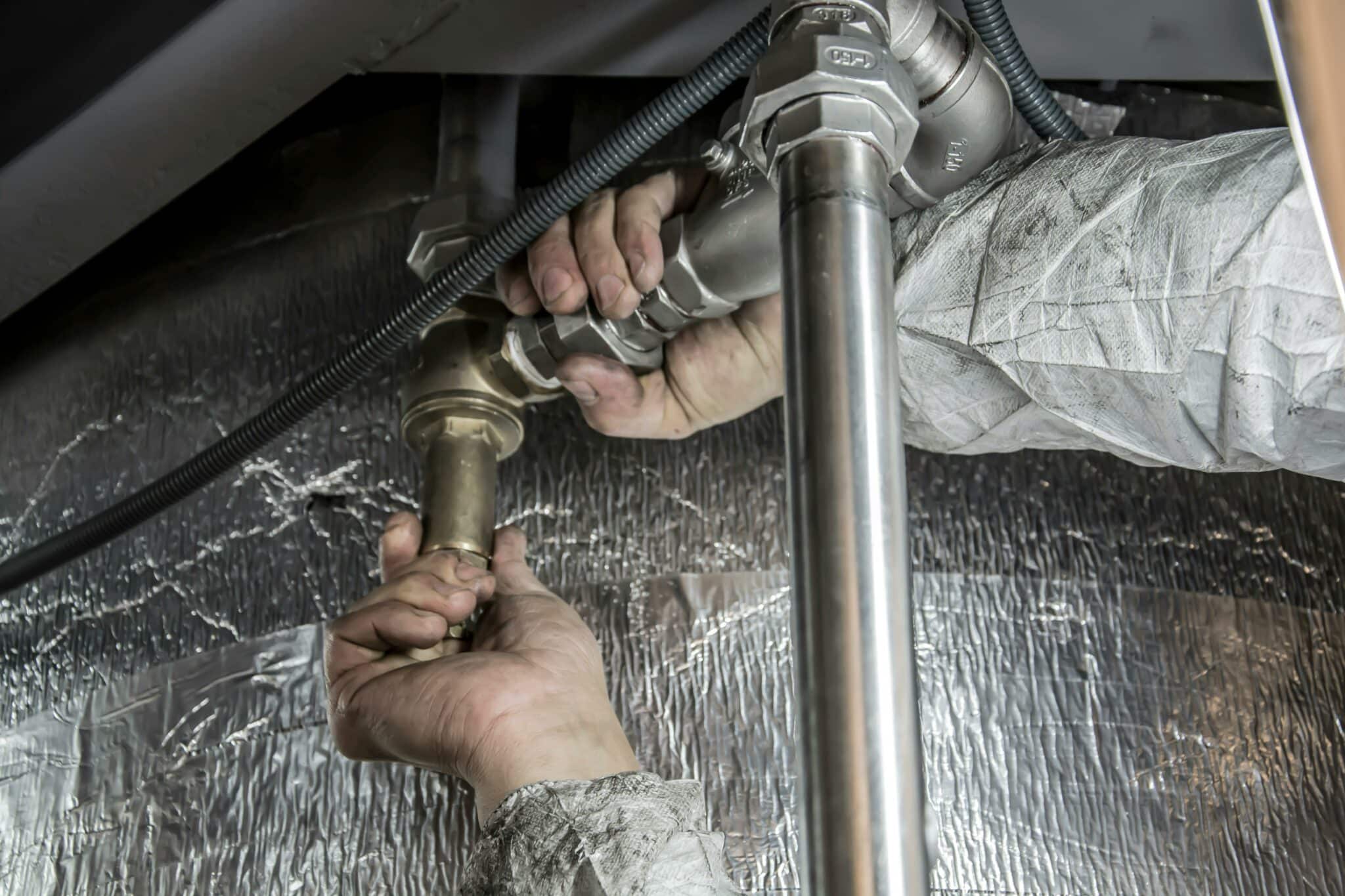
9 Tips for Clearing Blocked Drains Using Household Items
Blocked drains can be a real nuisance, but before you contact South East Plumbing for emergency plumbing services, consider trying some simple, cost-effective methods using items you likely already have at home. Here’s a detailed guide with nine effective tips for clearing blocked drains and sewers, ensuring you address the issue efficiently and avoid unnecessary expenses.
1. Boiling Water
One of the easiest and most effective ways to clear a blocked drain is with boiling water. This method works particularly well for removing grease, soap scum, and other light blockages.
How to Use:
- Boil a large pot of water on your stove.
- Carefully pour the boiling water down the drain in stages, allowing each pour to sit for a few seconds before adding more.
- For more stubborn clogs, you might need to repeat this process several times.
Why It Works: The high temperature of the water helps to dissolve and break up grease and other substances that cause blockages. It’s especially useful for kitchen sinks where grease buildup is common.
2. Baking Soda and Vinegar
A combination of baking soda and vinegar is a natural, effective way to clear minor drain clogs. This mixture creates a fizzing reaction that helps dislodge debris and neutralize odors.
How to Use:
- Pour half a cup of baking soda down the drain.
- Follow with half a cup of white vinegar.
- Let the mixture sit and fizz for about 15 minutes.
- Rinse the drain with hot water to clear away loosened debris.
Why It Works: The reaction between baking soda and vinegar creates carbon dioxide, which helps break up the clog. This method is great for minor clogs and also helps freshen up your drain.
3. Plunger
A plunger is a versatile tool that can be used for more than just toilet clogs. It can also help clear blockages in sinks, tubs, and showers.
How to Use:
- Ensure there is enough water in the sink or tub to cover the plunger’s cup.
- Position the plunger over the drain and push down firmly, then pull up sharply. Repeat this process several times.
- For stubborn clogs, you might need to use more force and perform the plunging action more frequently.
Why It Works: The plunger creates a vacuum effect that helps dislodge and move the blockage. This method is particularly effective for clogs that are not too deep within the pipes.
4. Salt and Baking Soda
Combining salt with baking soda provides a more abrasive cleaning solution that can tackle tougher clogs. The salt enhances the abrasiveness of the baking soda, making it more effective at breaking down blockages.
How to Use:
- Mix one cup of baking soda with one cup of salt.
- Pour the mixture down the drain.
- Follow with a kettle of boiling water.
- Let it sit for about 15 minutes, then rinse with hot water.
Why It Works: The salt adds a gritty texture that helps to scrub away buildup, while the baking soda reacts with the hot water to further dissolve the clog. This combination is useful for more stubborn blockages.
5. Use a Wire Coat Hanger
A wire coat hanger can be an effective tool for manually removing debris if the clog is within reach. This method is especially useful for hair clogs in bathroom sinks and tubs.
How to Use:
- Straighten out a wire coat hanger and create a small hook at one end.
- Carefully insert the hook into the drain and maneuver it to dislodge or pull out debris.
- Be cautious not to push the clog further down or damage your pipes.
Why It Works: The hook can grab and pull out hair and other debris that might be causing the blockage. It’s a practical solution for clogs near the surface.
6. Plumbing Snake
A plumbing snake, or auger, is designed to reach deeper into the pipes and break up severe clogs. If you have access to one, it can be invaluable for addressing more serious blockages.
How to Use:
- Insert the end of the snake into the drain.
- Turn the handle to advance the snake into the pipe.
- When you encounter resistance, continue turning to break up or hook the clog.
- Carefully retract the snake, removing any collected debris.
Why It Works: The rotating action of the snake helps to break up blockages that are further down the pipes, making it effective for entrenched clogs.
7. Dish Detergent and Hot Water
Dish detergent is formulated to break down grease, making it an effective solution for clogs caused by fatty substances.
How to Use:
- Pour a generous amount of dish detergent down the drain.
- Follow with a large pot of boiling water.
- Allow the mixture to sit for a few minutes to work on the grease.
- Rinse with additional hot water.
Why It Works: The dish detergent helps dissolve grease, while the hot water flushes away the loosened debris. This method is ideal for kitchen sinks where grease buildup is common.
8. Wet/Dry Vacuum
If you have a wet/dry vacuum, it can be a powerful tool for removing substantial blockages, especially if they are in difficult-to-reach areas.
How to Use:
- Set the vacuum to liquid mode.
- Place the vacuum hose over the drain.
- Create a tight seal around the hose and the drain opening.
- Turn on the vacuum to suck out the clog.
Why It Works: The strong suction of the wet/dry vacuum can remove large clumps of debris from the drain, making it effective for more significant blockages.
9. Enzyme Cleaners
Enzyme-based drain cleaners use natural enzymes to break down organic material in the pipes. These cleaners are an eco-friendly alternative to chemical-based products.
How to Use:
- Pour the recommended amount of enzyme cleaner into the drain.
- Allow it to sit for the time specified on the product label.
- Flush the drain with warm water to clear away any remaining debris.
Why It Works: Enzyme cleaners target organic material, such as food particles and hair, breaking them down into smaller, manageable pieces. They are effective for routine maintenance and minor blockages.
When to Seek Professional Help
While these tips can help with minor blockages, there are times when it’s best to call in a professional. If these methods do not resolve your issue or if you suspect a more serious problem, such as a blocked sewer line, professional assistance is necessary. For immediate help, consider exploring Blocked Drains services provided by South East Plumbing.
South East Plumbing offers expert assistance with blocked drains and sewers, equipped with the tools and experience to handle more complex plumbing issues efficiently. Don’t hesitate to seek professional help if you’re dealing with persistent or severe clogs.
By following these tips, you can often manage minor drain problems yourself and maintain your plumbing system in good condition. Regular maintenance and prompt action can prevent more serious issues and save you from costly repairs.



